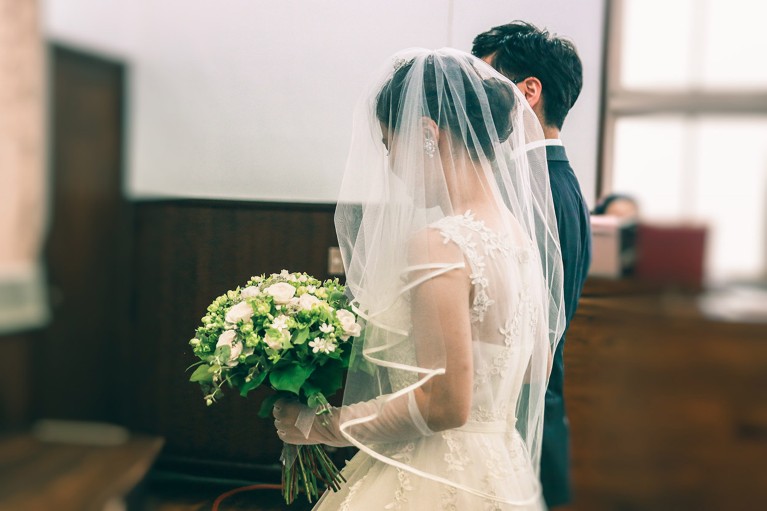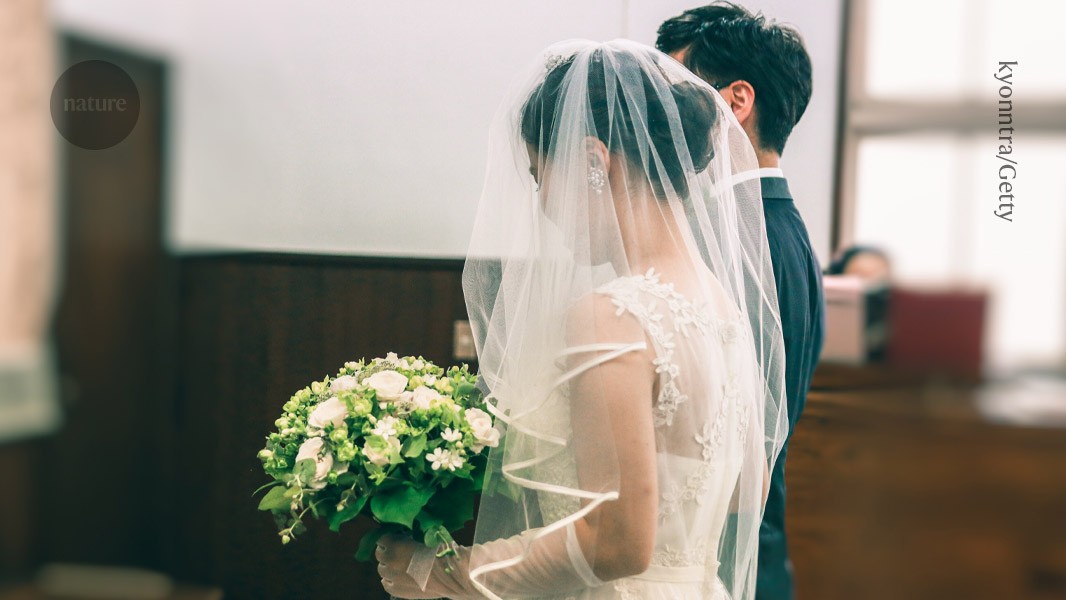
Married couples in Japan are required by law to share the same family name.Credit: kyonntra/Getty
Japan is the only country in the world that legally requires married couples to share the same family name — and that creates considerable problems for scientists, according to a survey of more than 7,500 researchers in the country.
The survey found that the naming law created confusion for researchers when obtaining patents, academic qualifications and applying for research grants, and had caused problems when travelling abroad and attending academic conferences and in ensuring that their entire body of work was attributed to them. The results of the survey were presented at a press conference on 16 June.
“The data clearly show that changing one’s surname can cause significant disadvantages,” says Misa Shimuta, a neuroscience researcher at the Jikei University School of Medicine in Tokyo, who was involved in the survey.
Earlier this year, Japan’s main opposition party put forward a bill proposing that married couples be allowed to retain their own family names after marriage. A proposal to change the rule, which has been in place for more than a century, was debated in the National Diet — Japan’s legislative body — last month, but a decision has been pushed to later in the year. In practice, the current rule mainly affects women — 95% of married women in Japan legally change their name to their husband’s.
Researcher survey
In response to the proposal to change the rule and other lobbying efforts, the Japan Inter-Society Liaison Association Committee for Promoting Equal Participation of Men and Women in Science and Engineering, an association representing about 100 academic societies working on gender equality, surveyed academics to try to understand how the current law affects them, says Noriko Sato, a forest-policy researcher at Kyushu University in Fukuoka, who led the survey.
The team collected responses from 7,582 academics, of which roughly one-third were women, between April and May. Just over 5% of the 3,810 married men who responded had changed their name after marriage, but more than 90% of the 1,506 married women had changed their name. Of those who had changed their name, more than 70% continued to use their original name at work, a practice that has become increasingly popular.
Of those who used their original family name at work, 78% said that even doing that caused issues.
Personal experience
Kyoko Ohno-Matsui, an ophthalmologist at the Institute of Science Tokyo, was born Matsui and married an Ohno, and uses the double-barrelled name in her professional life. “I didn’t want to change my surname,” she says. At conferences in Japan and when authoring papers in Japanese journals, she uses her legal name, Ohno. When she attends conferences abroad, where she is known as Ohno-Matsui, she often has trouble checking into hotels because her passport details don’t match those provided by the conference organizers.


